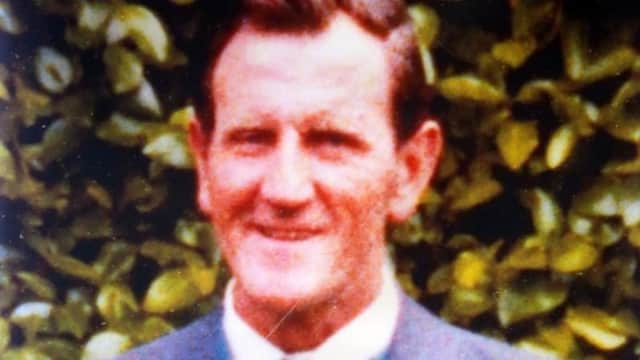Legal victory for ‘Good Samaritans’ relative


The Court of Appeal ruled that a duty to hold a human rights-compliant investigation into the circumstances surrounding the so-called Good Samaritan attack in Derry has not been met.
Senior judges declined to make an order compelling Northern Ireland’s Attorney General to direct a fresh tribunal.
Advertisement
Hide AdAdvertisement
Hide AdBut their verdict paves the way for Rosaleen Dalton’s lawyers to write to John Larkin QC, urging him to reconsider the need for a new inquest.
Ms Dalton’s 54-year-old father, Sean Dalton, was killed along with Sheila Lewis (68) in the explosion at a house in the Creggan area in August 1988.
A third victim, 57-year-old Gerard Curran, died months after being pulled from the rubble.
The attack became known as the ‘Good Samaritan Bombing’ because the three friends had gone to check on the whereabouts of a neighbour kidnapped earlier by the IRA.
Advertisement
Hide AdAdvertisement
Hide AdThe paramilitary grouping later apologised, admitting it had planted the device in a bid to kill soldiers.
In 2013, a Police Ombudsman report found RUC officers had information about an IRA booby trap bomb in a house in the housing estate but did nothing to warn residents of the possible danger.
The watchdog identified a failure in the police obligation to protect the lives of the public.
But, at that time, the Attorney General decided a new inquest was not advisable.
Advertisement
Hide AdAdvertisement
Hide AdBut the Dalton family launched a legal challenge against his decision, claiming such a tribunal could help to establish responsibility for police failures.
They contended that investigative obligations under Article 2 of the European Convention on Human Rights were rekindled by the Ombudsman’s findings.
In 2017, a High Court judge refused to quash Mr Larkin’s decision, citing the financial and human costs of a further public hearing which would be unlikely to advance the goal of prosecuting the perpetrators.
Appealing that ruling, lawyers for Ms Dalton contended that police shortcomings were “crying out” for examination by a new inquest. They insisted the case was about ensuring responsibility and accountability.
Advertisement
Hide AdAdvertisement
Hide AdDelivering judgment on the appeal, Mr Justice Maguire said much still appears to be “shrouded in mystery” despite the Police Ombudsman’s findings.
He rejected the argument that the Ombudsman’s report has satisfied the human rights requirements.
“The key finding of this court is that, to date, the Article 2 investigative obligation which was revived has not been satisfied,” he said. “This was not the view of the (High Court) judge or the AGNI (Attorney General). In these circumstances, the court will allow the appeal.”
Based on those findings, further consideration will need to be given to the case by Mr Larkin.
Advertisement
Hide AdAdvertisement
Hide AdOutside court, Ms Dalton’s solicitor insisted the ruling promotes the right of bereaved families to challenge the denial of inquests in conflict-related cases.
Kevin Winters said: “It may indeed open up the possibility of reopening previously refused applications.
“On the back of the recent negative announcement by the British Government on legacy, this is a timely positive message for families and their hopes for future inquests.”